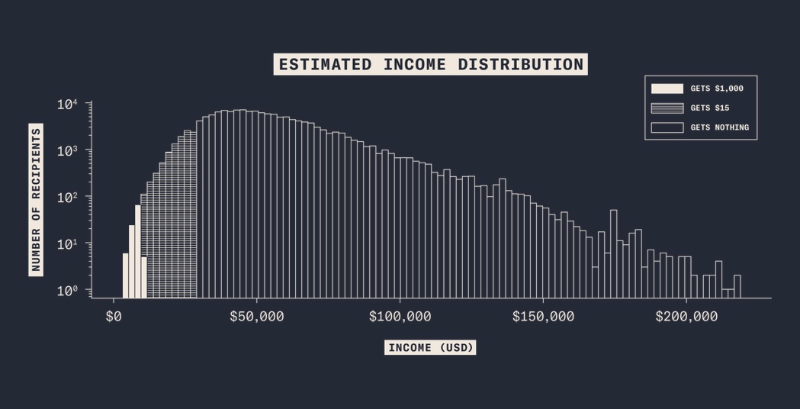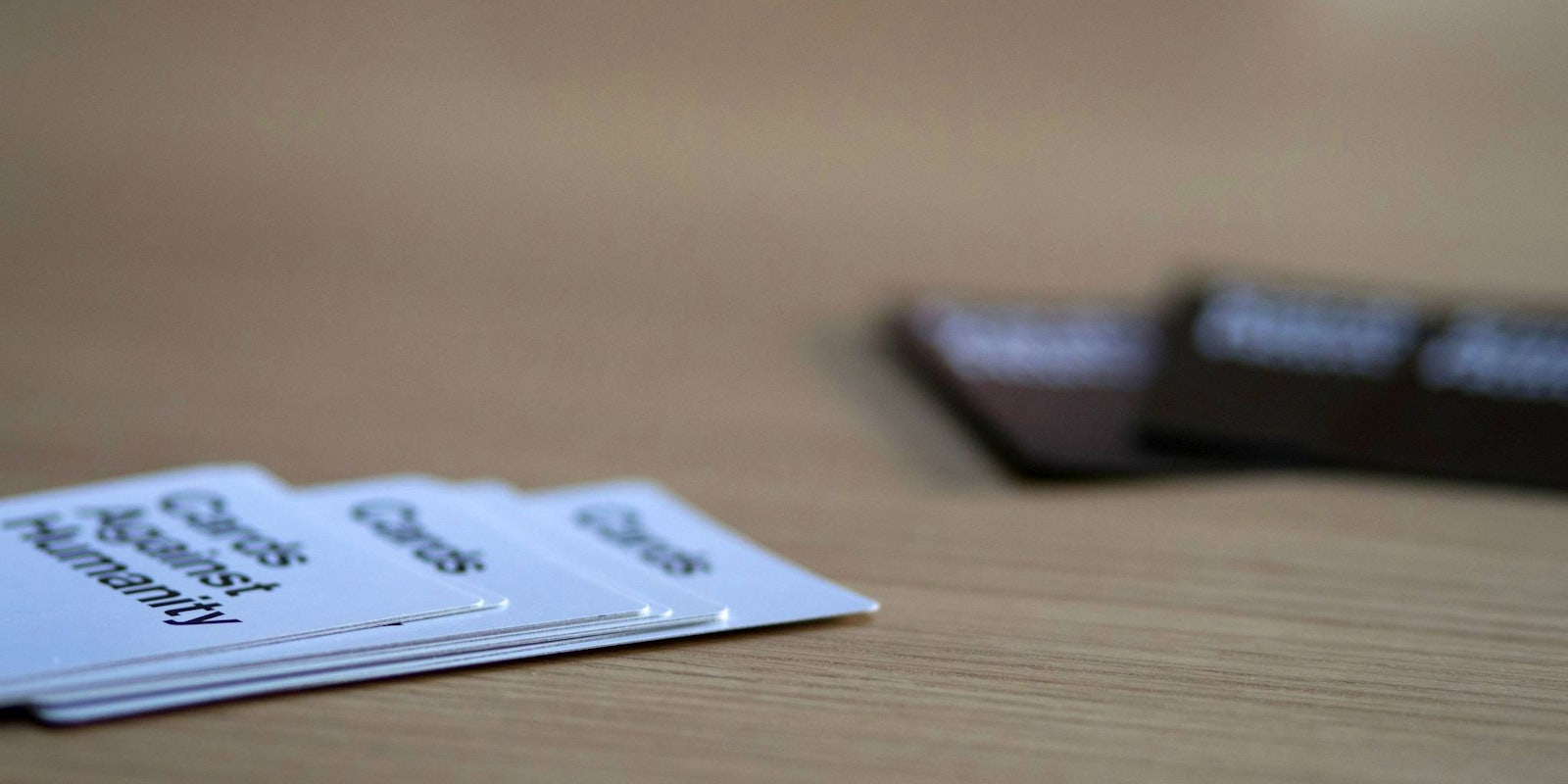Cards Against Humanity raised $2 million in nine hours to attempt to stop President Donald Trump’s border wall. Now, the makers of the popular party game unveiled another reason behind their most recent project—to help with wealth inequality.
In November, Cards Against Humanity launched a holiday deal that allowed fans to pay $15 to receive six surprise packages in December. The first gift was an illustrated map of a piece of vacant land the makers bought on the Texas/Mexico border, a certificate “of our promise to fight the wall,” and an explanation that it had “retained a law firm specializing in eminent domain to make it as time-consuming and expensive as possible for the wall to get built.”
Now, the game-makers have revealed on their Cards Against Humanity Redistributes Your Wealth website that one of the packages was to give back some of the money it collected for the holiday deal.
As the makers wrote: “Here are some crazy facts: Today, eight men own the same amount of wealth as the poorest half of humanity (almost 4 billion people). Most Americans can’t come up with $400 in an emergency, and one in five American households have zero or negative wealth. That is truly fucked. But none of us feel like we can do anything about it.”
But with 150,000 people buying the holiday deal at $15 a piece, that’s $2.25 million. After joking that its lawyers advised the company not to implement its first idea of eating all the rich people and taking over their houses, Cards Against Humanity said instead it would give the poorest 100 people that bought into the deal a check for $1,000 that was paid for by everyone else.
As the company explained:
When they signed up, subscribers filled out a survey with a mix of demographic questions and red herrings. We ranked everyone based on their survey responses and geographical census data to figure out who most needed money.
-
Most of our subscribers (about 140,000 people) got nothing today—they could have it worse.
-
The next 10,000 subscribers received a full $15 refund of their Cards Against Humanity Saves America
-
Finally, the poorest 100 people received a check for $1,000, paid for by everyone else.
Then, Cards Against Humanity highlighted comments from some of the people that apparently won the $1,000. That included customers who had health problems, a transgender couple who said they would use the money for name changes and a transition/wedding fund, and a special needs student who needs help paying off her student debt.
Since it had everybody’s home address, it used census information to find out about median household income and other labor information in people’s neighborhoods; it used Bureau of Labor Statistics data to determine people’s race, gender, and education level and estimate incomes along with median salaries from their occupations; and it gave extra weight to people with health problems and medical/credit card/student loan debt and for those who are stressed about money.
As Cards Against Humanity explained, “We turned all these factors into z-scores and combined them with relative weights to make our initial ranking. Here’s our estimated income distribution histogram:”

As for the impact of its redistribution of wealth plan, Cards Against Humanity knows it’s not going to singlehandedly solve the country’s problems. But hey, it’s a start.
“Giving 100 people $1,000 doesn’t fix wealth inequality,” it wrote. “But we think these stories are a clear demonstration of how much $1,000 means to someone struggling to pay for basic necessities.”


